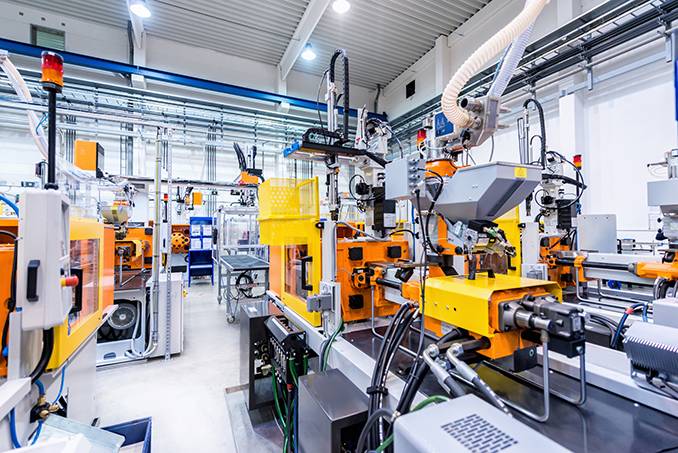Vice-Provost's View: Developing UCL's Response to the Industrial Strategy
9 February 2017
The government's new industrial strategy Green Paper, Building our Industrial Strategy, was launched last month.
 This discussion
document sees a major role for universities in promoting innovation and
encouraging economic growth across the whole of the UK.
This discussion
document sees a major role for universities in promoting innovation and
encouraging economic growth across the whole of the UK.
A summary of the Green Paper is available as a PDF on the Gov.uk website.
Consultation on the Green Paper is now underway. We at UCL can make an important contribution to the development of the strategy thanks to expertise gained over many years from successfully commercialising our research and building partnerships with industry.
In addition, we have significant experience in engagement with policymakers and influencers both through UCL Public Policy and our academics who have served with and for government, for example as Chief Scientific Advisors.
Providing knowledge and understanding
Together with other research-focused universities, we have the knowledge and understanding that can assist government in developing its industrial strategy, and support parliament in considering the policy as it is developed.
This is important, as a well-designed industrial policy can provide a framework for driving the excellent research discoveries from universities, delivering societal and economic benefit.
A particular aspect, highly appropriate to UCL, is ensuring that new technologies can be introduced and absorbed into industry - as we are seeing in the stem cell and gene therapy area, for example.
I am sure many academic colleagues will want to make their own submissions to the consultation based on their specialist knowledge. I will also be putting together a submission on behalf of UCL corporately, working closely with colleagues in UCL Innovation and Enterprise and the Office of the Vice-Provost (Research).
If you would like to contribute to the UCL response, please do get in touch (details below).
UCL as a stakeholder
Focusing on the role of universities in the developing industrial strategy, we are stakeholders in many of the 10 pillars, including 'Investing in science', 'Research & innovation', 'Developing skills' and 'Creating the right local institutions'.
Also we can play a role in others: intellectually, for example, in relation to 'Delivering affordable energy & clean growth'; or practically, with 'Supporting businesses to start & grow' - where the UCL focus on student entrepreneurship will be important.
To be effective, industrial strategy needs to take a long-term view: it is welcome to see that the proposals here can be linked back to earlier thinking and interventions - for example, the Eight Great Technologies espoused by David (now Lord) Willetts.
We should engage with the consultation for this Green Paper with a long-term view, rather than seeing it wedded to the government of the day.
The Industrial Strategy includes a proposal to develop an Industrial Strategy Challenge Fund that will focus on fields such as:
- smart, flexible and clean energy technologies
- robotics and artificial intelligence
- satellites and space technologies
- leading-edge healthcare and medicine
- manufacturing processes and materials of the future
- bioscience and biotechnology
- quantum technologies
- transformative digital technologies.
This is seen as a way to support a range of industrial R&D activities with many potential modes of university engagement.
Consultation on the priority areas continues, with sustainable cities and the creative industries also under consideration for investment. The mode of delivery is not yet clear but we do know that there will be expectation of significant business involvement.
This increased focus on university-business interactions is one of the reasons why we have reorganised our facilitation teams to create UCL Innovation and Enterprise, which includes a new, and growing, Business and Enterprise Partnerships team, led by Dr Martin Davies.
Innovation ecosystems
One new element of this industrial strategy is the importance of place to innovation, creating ecosystems that can flourish, and the significance of "anchor institutions" within them.
UCL makes a substantial contribution to the innovation ecosystems in London, for example, our strong position in health and clinical research has led to the creation of spin-out companies such as Autolus and Orchard Therapeutics.

Elsewhere, our work on many aspects of the built environment has produced successful spin-outs such as Space Syntax, while our student entrepreneurship programme has seen 40+ student start-ups created every year for the past six years, including successes such as Amahlia and Playbrush.
The Green Paper makes repeated mention of London's special position in the UK economy, but often to note that other regions need support to achieve similar performance.
We should continue to make the case that London's concentration of research is a magnet for global companies to come to the UK, benefiting the whole economy.
This can be seen here in the Knowledge Quarter (the area around the Euston Road and Bloomsbury with UCL as a key component) where a significant concentration of world-class research has attracted investment from leading international companies, such as Google in its new headquarters in King's Cross and Facebook with its upcoming move to Fitzrovia.
UCL 2034 commits UCL to playing a leading role in the London HE sector. Reflecting this, we recently hosted a table for key HE partners at the London First (a significant London think tank) annual dinner.
Linked to the UCL role in London HE, I was recently appointed as a member of the board for the new pan-London Local Enterprise Partnership, the London Economic Action Partnership (LEAP). It brings together businesses, London's Mayor and local councils to identify strategic actions to support economic growth and job creation in the capital.
UCL's participation in the LEAP will be another route to enable the outstanding higher education sector in London to contribute our world-class expertise to support business and innovation in the capital.
Dr Celia Caulcott
Vice-Provost (Enterprise and London)
Contributions to UCL's Industrial Strategy consultation submission should be made to vpenterprise@ucl.ac.uk by the end of March.
 Close
Close

